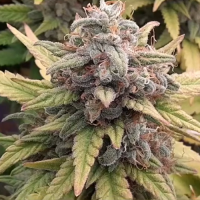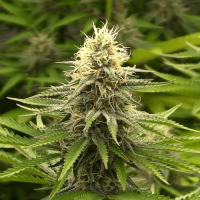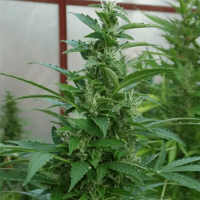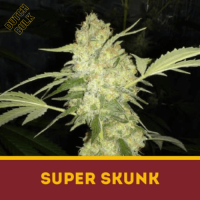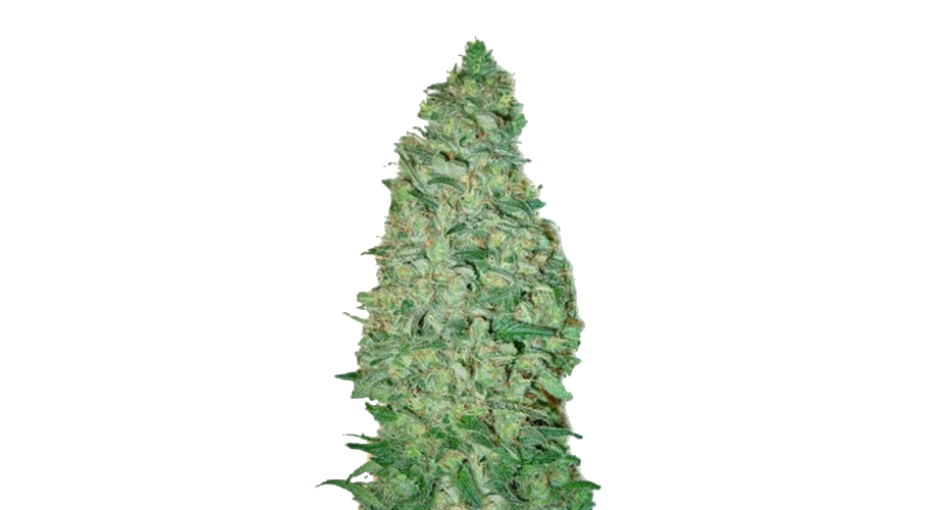
Skunk: The Genetic Legacy That Changed Cannabis Cultivation
When talking about key cannabis strains, it’s impossible not to mention Skunk. This strain didn’t just become a legend – it actually laid the foundation for the modern concept of stable, productive and powerful hybrids. Hailing from California in the 1970s, Skunk was the result of thoughtful breeding work by a group of enthusiasts from the Sacred Seed Company. Their goal was ambitious: to combine the best traits of Afghani indica, Mexican and Colombian sativa in one stable, powerful and aromatic hybrid.
The breeders set themselves the task of creating a strain with predictable results and high phenotype stability. It was a time of experimentation, when cannabis was not yet as formalized as it is today, and most varieties were “land” — originating from natural populations. The inclusion of Afghani indica gave the future Skunk high resistance to pests and diseases, dense buds and a short flowering period. Mexican sativa added lightness and euphoria, and Colombian — a bright fruity profile and a powerful long-lasting effect. Together, this formed a unique genetic cocktail.
Skunk’s real rise in popularity occurred after its genetics were transferred to the Netherlands. Breeder Sam Skunkman, saving valuable seeds from bans in the United States, ended up in Amsterdam — at that time the capital of legal cannabis culture. There, Skunk #1 quickly gained respect for its stability, strength and ease of cultivation. Dutch breeders began to create new generations of hybrids based on it, including Super Skunk, Shiva Skunk, and later popular citrus derivatives like Lemon Skunk.
Why did Skunk become such a universal choice for growers around the world? First of all, due to the stability of its genetics: even in open ground or with minimal care, the plant demonstrated predictable growth and decent yields. In addition, Skunk had a pronounced, sharp smell that resembled the musky aroma of a skunk - hence the name. The original Skunk #1 had a balanced effect, combining the vigor of a sativa with the physical relaxation of an indica, making it versatile for both recreational and medical use.
In the 1990s, when systematic research into the medical properties of cannabis began, Skunk #1 and its derivatives took the lead among the varieties tested. Due to the high concentration of THC and other active components, such plants proved effective in the treatment of pain, sleep disorders, stress disorders, and chemotherapy symptoms. Moreover, Skunk was later used as a base for strains with reduced THC and increased cannabidiol (CBD) levels to expand the range of medical applications.
The modern cannabis industry owes much to Skunk. It was this variety that became the basis for the development of such technologies as hydroponics, drip irrigation, and automated climate control systems. It also influenced the standardization of cultivation, as it allowed to predict the yield and effect with high accuracy. Thanks to these qualities, Skunk became the choice of many professional cultivators and is still considered a benchmark variety, which is equal to when creating new hybrids.
The store "Smile Seeds" presents a collection of varieties based on Skunk genetics, time-tested and approved by thousands of growers. Varieties such as Auto Skunk Haze, Super Skunk, Early Skunk or Skunk #11 are suitable for both beginners and experienced masters. They are characterized by resistance, high yields and predictable results - exactly what makes Skunk unrivaled in its class.
Skunk is not just a strain. It is a cultural and breeding phenomenon that has influenced the entire modern movement for the legalization, standardization and medical recognition of cannabis. It has become a symbol of a quality approach to cultivation, powerful genetics and resistance. If you are looking for cannabis with history, proven effectiveness and worldwide recognition - pay attention to Skunk from Smile Seeds.

